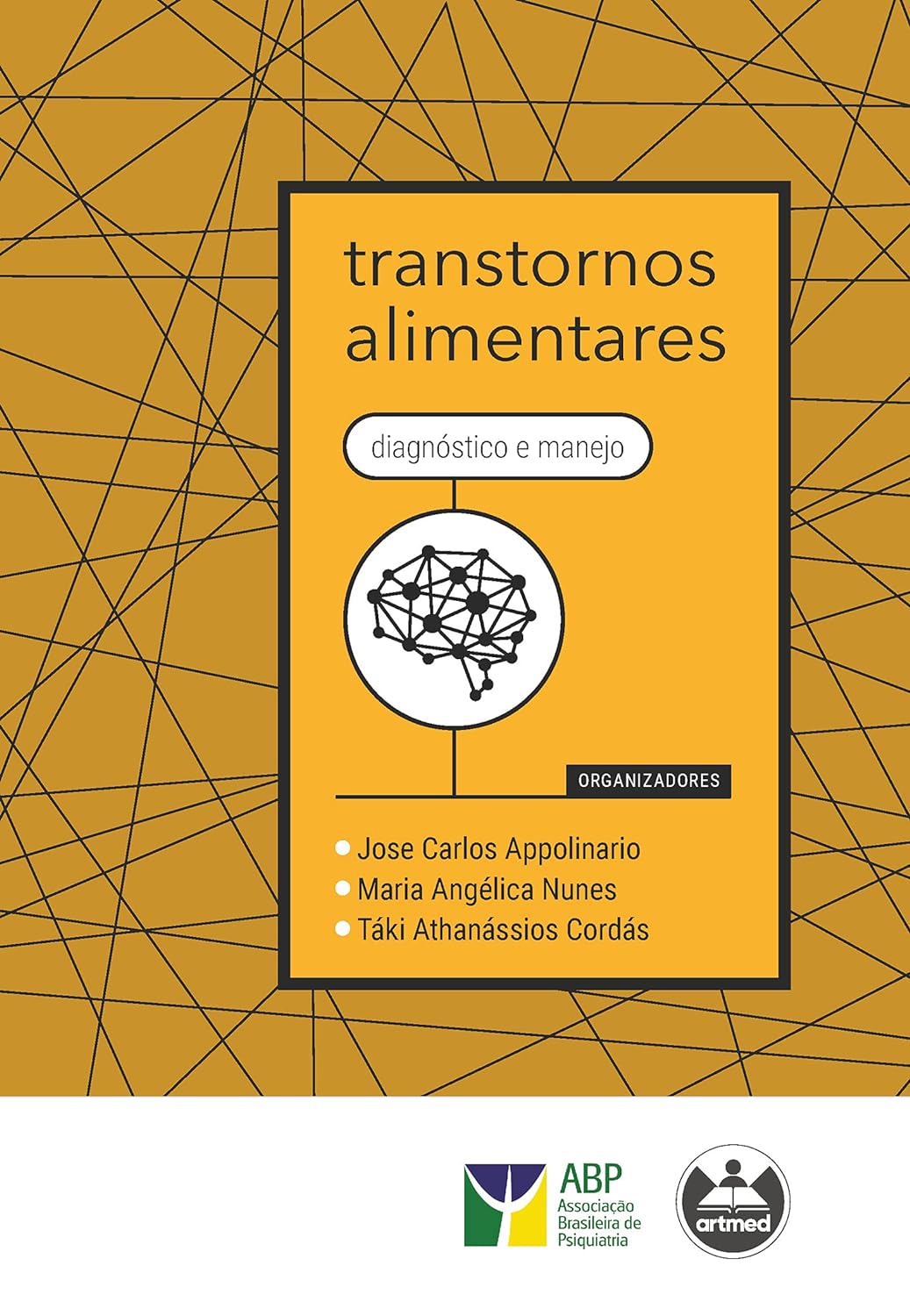Book review: Appolinario, JC; Nunes MA; Cordás TA. Eating disorders: diagnosis and management. Artmed; Porto Alegre: Brazilian Psychiatric Association (ABP), 2022.
DOI:
https://doi.org/10.25118/2763-9037.2024.v14.1235Keywords:
eating desorders, anorexia nervosa, bulimia nervosa, PsychiatryAbstract
This review will comment on the book “Eating disorders: diagnosis and management”, published in 2022 and organized by well-known names in national psychiatry: José Carlos Appolinario, Maria Angélica Nunes and Táki Athanássios Cordás. There are 24 chapters that detail the history, epidemiology, diagnosis, course, complications and treatment of eating disorders. The importance of a multidisciplinary approach is shown, with the participation of nutrition and psychology to manage disorders. Complex topics involving diabetes and bariatric surgery are also covered. For those looking for knowledge on the subject, you can attest that you will find a lot in this single work.
Book Summary
Chapter 1. Eating disorders: historical aspects
Chapter 2. Diagnosis and classification of eating disorders
Chapter 3. Epidemiology of eating disorders
Chapter 4. Instruments for the assessment of eating disorders
Chapter 5. Etiology of eating disorders
Chapter 6. Body image and eating disorders
Chapter 7. Psychiatric comorbidity and eating disorders
Chapter 8. Course and prognosis of eating disorders
Chapter 9. Eating disorders in other populations
Chapter 10. Emerging eating syndromes (picking, food addiction, purging disorder, orthorexia nervosa)
Chapter 11. Risk factors and prevention of eating disorders
Chapter 12. Complications and clinical management of eating disorders
Chapter 13. General treatment guidelines and hospital approach to eating disorders
Chapter 14. Nutritional assessment and management of eating disorders
Chapter 15. Cognitive-behavioral therapy of eating disorders
Chapter 16. Family therapy of eating disorders
Chapter 17. Other forms of psychotherapy for eating disorders
Chapter 18. Pharmacological treatment of eating disorders
Chapter 19. Other biological interventions for eating disorders
Chapter 20. Eating disorders and diabetes
Chapter 21. Eating disorders in children and adolescents
Chapter 22. Eating disorders and bariatric and metabolic surgeries
Chapter 23. Support networks and provision of eating disorder services
Chapter 24. The use of new technologies in eating disorders
Downloads
Metrics
References
Nardi EG, Silva AG, Quevedo J, organizadores. Tratado de psiquiatria da Associação Brasileira de Psiquiatria. Porto Alegre: Artmed; 2022.
Appolinario JC, Nunes MA, Cordás TA, organizadores. Transtornos alimentares: diagnóstico e manejo. Porto Alegre: Artmed, Associação Brasileira de Psiquiatria (ABP); 2022.

Published
How to Cite
Issue
Section
License
Copyright (c) 2024 Camila Midori Kubota Rodrigues, Isabela Miguel Pissioli, Agnes Ayumi Deno, Martina da Costa Hummelgen

This work is licensed under a Creative Commons Attribution-NonCommercial 4.0 International License.
Debates em Psiquiatria allows the author (s) to keep their copyrights unrestricted. Allows the author (s) to retain their publication rights without restriction. Authors should ensure that the article is an original work without fabrication, fraud or plagiarism; does not infringe any copyright or right of ownership of any third party. Authors should also ensure that each one complies with the authorship requirements as recommended by the ICMJE and understand that if the article or part of it is flawed or fraudulent, each author shares responsibility.
Attribution-NonCommercial 4.0 International (CC BY-NC 4.0) - Debates em Psiquiatria is governed by the licencse CC-By-NC
You are free to:
- Share — copy and redistribute the material in any medium or format
- Adapt — remix, transform, and build upon the material
The licensor cannot revoke these freedoms as long as you follow the license terms. Under the following terms:
- Attribution — You must give appropriate credit, provide a link to the license, and indicate if changes were made. You may do so in any reasonable manner, but not in any way that suggests the licensor endorses you or your use.
- NonCommercial — You may not use the material for commercial purposes.
No additional restrictions — You may not apply legal terms or technological measures that legally restrict others from doing anything the license permits.





























